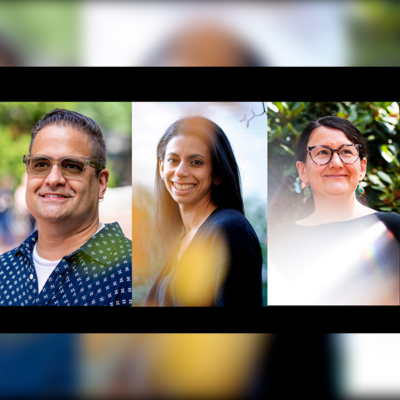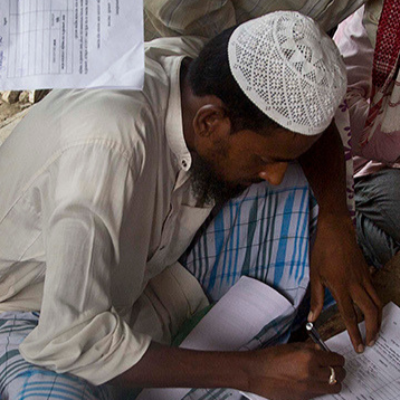Liza Weinstein

Department Chair; Associate Professor of Sociology
Liza Weinstein researches and teaches on cities and globalization, urban political economy, and the politics of informality with a regional focus on India. Her work has appeared in Politics & Society, International Journal of Urban and Regional Research, and City & Community, and numerous edited volumes. Her 2014 book, The Durable Slum: Dharavi and the Right to Stay Put in Globalizing Mumbai (University of Minnesota Press), examines the Indian state’s changing response to residential informality in the context of economic globalization and global city formation. She is currently completing a book titled, The Logics of Dispossession: Local Histories of India’s “World Class” Evictions, which analyzes the shifting politics of housing insecurity and anti-eviction activism across urban India. She is also leading a National Science Foundation-funded study on the intersection of legal exclusion, embodiment, and territorial stigma in non-notified communities in Mumbai.
“Toward a Global Urban Sociology: Keywords” (with Marco Garrido and Xuefei Ren), City and Community, online first June 19, 2020.
“Evictions: Reconceptualizing Housing Insecurity from the Global South,” City and Community, online first July 15, 2020.
“Resilient Growth: Fantasy Plans and Unplanned Developments in India’s Flood-Prone Coastal Cities,” (with Andrew Rumbach and Saumitra Sinha), International Journal of Urban and Regional Research, 43(2019): 273-291
“Insecurity as Confinement: The Entrenched Politics of Staying Put in Delhi and Mumbai,” International Sociology, 32(2017): 512–531.
The Durable Slum: Dharavi and the Right to Stay Put in Globalizing Mumbai, University of Minnesota Press, 2014.
2020: Northeastern University, College of Social Science and Humanities, COVID-19 Research Development Initiative: ““Legal Exclusion and Community Response to Crisis in Mumbai’s Slum Settlements” ($5,000 awarded)
2019: National Science Foundation (NSF), Sociology Program: “Collaborative Research: Social Construction of Legal Exclusion in Indian Slums” ($376,999 awarded, 2-year grant)
2019: National Endowment for the Humanities (NEH) Summer Institute for Higher Education Faculty: “Engaging Geography in the Humanities” ($155,665 awarded)
2018: Northeastern University Health Equity Fellowship: “Embodied Legal Exclusion in an Indian Slum” ($5,000 awarded)
2018: Northeastern University Asian Studies Research Development Award “Embodied Legal Exclusion in an Indian Slum” ($2,000 awarded)
2017: Northeastern University, College of Social Science and Humanities, Research Development Initiative: “Embodied Legal Exclusion in an Indian Slum” ($5,000 awarded)
2016: Northeastern University Humanities Center 2016-2017 Faculty Fellowship: “New Urban Land Gabs? Housing Insecurity in Urban India, 1960 – 2015” (1 course release)
2014: Fulbright-Nehru Academic and Professional Excellence Fellowship: “Demolition, Dispossession, and Resistance: Resident Evictions in Urban India” ($31,500 awarded).
2014″ Northeastern University Tier 1 Internal Grant Programs in Support of Interdisciplinary Research: “The Impact of Legal Access on Conditions of Housing Security in Urban India” (Co-PI, with Martha Davis, Northeastern University School of Law) ($50,000 awarded)
| American Sociology Association (Community and Urban Sociology Section; Political Sociology Section; Sociology of Development Section)
RC-21 (Urban and Regional Development) of the International Sociological Association |
Editor, International Journal of Urban and Regional Research https://www.ijurr.org/
Member of the Displacement Research and Action Network http://mitdisplacement.org
-
Education
PhD, Sociology
University of Chicago, 2009 -
Contact
-
Address
901 Renaissance Park
360 Huntington Avenue
Boston, MA 02115 -
Office Hours
By Appointment: https://calendly.com/l-weinstein/30mins
-
Dialogues
Related Stories
-
Culture and Politics in Modern India
ANTH 4515
Introduces the histories, cultures, and peoples of India. Seeks to convey a sense of how knowledge has been constructed about the region and how the subcontinent has been shaped by its engagements with the world through such processes as colonization, state building, and globalization. Uses readings, films, and class discussions to examine themes and topics that include Orientalism, postcolonialism, caste and community, gender and sexualities, conflict and violence, development and resistance, and transnational structures and processes. Critically evaluates some commonly held assumptions, including classical understandings of tradition and modernity, cohesion and conflict, and nation and identity.
-
Globalization and the City
SOCL 7268
Considers the conditions of cities and their residents in the era of globalization. Cities have always been located at the center of regional and global networks of trade, capital, and culture. Even so, urban sociology has tended to treat cities as closed systems, defined more by internal logics than by broader social and economic forces. Since the early 1990s, however, shifts under way in the global economy, information and communications technologies, political movements, and cultural processes have altered the way that scholars (and policy makers, planners, architects, urban residents, etc.) look at cities. Increasingly, the world’s cities are regarded as nodes in global networks; and correspondingly, urban social and spatial processes are being viewed through global lenses.

Global Markets and Local Cultures
ANTH 2305
Examines selected topics in the socioeconomic transformation of other cultures, including urbanization, industrialization, globalization, commodity production, and international labor migration. Focuses on the impact of global capitalist development on contemporary developing and postcolonial societies as well as local responses and/or resistances to those changes.





















